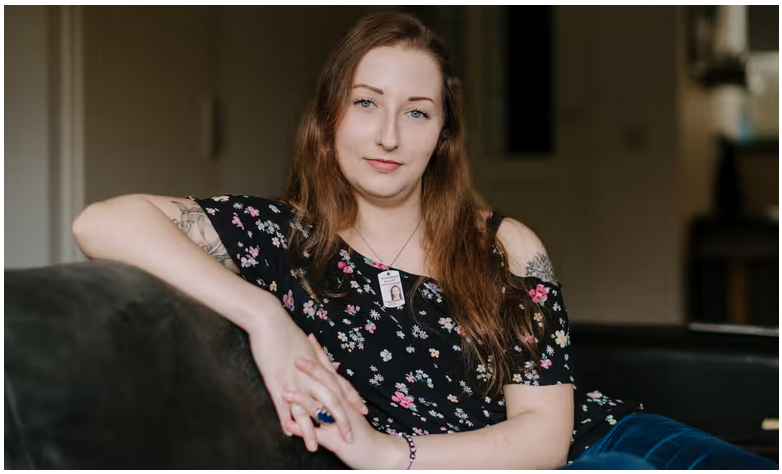A 29-year-old Dutch woman who has been granted her request for assisted dying on the grounds of unbearable mental suffering is expected to end her life in the coming weeks, fuelling a debate across Europe over the issue.
Zoraya ter Beek received the final approval last week for assisted dying after a three and a half year process under a law passed in the Netherlands in 2002.
Her case has caused controversy as assisted dying for people with psychiatric illnesses in the Netherlands remains unusual, although the numbers are increasing. In 2010, there were two cases involving psychiatric suffering; in 2023, there were 138: 1.5% of the 9,068 euthanasia deaths.
An article about her case, published in April, was picked up by international media, prompting an outcry that caused Ter Beek huge distress.
She said it was understandable that cases such as hers – and the broader issue of whether assisted dying should be legal – were controversial. “People think that when you’re mentally ill, you can’t think straight, which is insulting,” she told the Guardian. “I understand the fears that some disabled people have about assisted dying, and worries about people being under pressure to die.
“But in the Netherlands, we’ve had this law for more than 20 years. There are really strict rules, and it’s really safe.”
Under Dutch law, to be eligible for an assisted death, a person must be experiencing “unbearable suffering with no prospect of improvement”. They must be fully informed and competent to take such a decision.
Ter Beek’s difficulties began in early childhood. She has chronic depression, anxiety, trauma and unspecified personality disorder. She has also been diagnosed with autism. When she met her partner, she thought the safe environment he offered would heal her. “But I continued to self-harm and feel suicidal.”
She embarked on intensive treatments, including talking therapies, medication and more than 30 sessions of electroconvulsive therapy (ECT). “In therapy, I learned a lot about myself and coping mechanisms, but it didn’t fix the main issues. At the beginning of treatment, you start out hopeful. I thought I’d get better. But the longer the treatment goes on, you start losing hope.”
After 10 years, there was “nothing left” in terms of treatment. “I knew I couldn’t cope with the way I live now.” She had thought about taking her own life but the violent death by suicide of a schoolfriend and its impact on the girl’s family deterred her.
“I finished ECT in August 2020, and after a period of accepting there was no more treatment, I applied for assisted dying in December that year. It’s a long and complicated process. It’s not like you ask for assisted dying on a Monday and you’re dead by Friday.
“I was on a waiting list for assessment for a long time, because there are so few doctors willing to be involved in assisted dying for people with mental suffering. Then you have to be assessed by a team, have a second opinion about your eligibility, and their decision has to be reviewed by another independent doctor.
“In the three and a half years this has taken, I’ve never hesitated about my decision. I have felt guilt – I have a partner, family, friends and I’m not blind to their pain. And I’ve felt scared. But I’m absolutely determined to go through with it.
“Every doctor at every stage says: ‘Are you sure? You can stop at any point.’ My partner has been in the room for most conversations in order to support me, but several times he has been asked to leave so the doctors can be sure I’m speaking freely.”
When the article about her case – which Ter Beek said had many inaccuracies and misrepresentations – was published in April, her inbox “exploded”. Most of the comments came from outside the Netherlands, many from the US. She swiftly deleted all her social media accounts.
“People were saying: ‘Don’t do it, your life is precious.’ I know that. Others said they had a cure, like a special diet or drugs. Some told me to find Jesus or Allah, or told me I’d burn in hell. It was a total shitstorm. I couldn’t handle all the negativity.”
After meeting her medical team, Ter Beek expects her death will be in the next few weeks. “I feel relief. It’s been such a long fight.”
On the appointed day, the medical team will come to Ter Beek’s house. “They’ll start by giving me a sedative, and won’t give me the drugs that stop my heart until I’m in a coma. For me, it will be like falling asleep. My partner will be there, but I’ve told him it’s OK if he needs to leave the room before the moment of death,” she said.
“Now the point has come, we’re ready for it and we’re finding a certain peace. I feel guilty too. But sometimes when you love someone, you have to let them go.”
